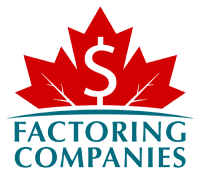
Struggling to balance growth and cash flow? Poor credit control might be the invisible barrier holding you back. Late payments and overdue invoices can disrupt even the most promising businesses, creating cash flow gaps that make it harder to cover essential expenses or seize growth opportunities. Below, we’ll explore how credit control and factoring work together to tackle these challenges, so you can focus on running and growing your business.
The Basics of Credit Control for Small Businesses
Credit control is the process a business uses to manage the credit it extends to customers, ensuring payments are received on time while minimizing the risk of bad debts. It’s basically the way you balance trust in your customers’ ability to pay with the need to maintain a healthy cash flow.
Key Aspects of Credit Control
- Assessing Creditworthiness: Before offering payment terms to a customer, businesses assess their financial reliability. This may involve reviewing credit reports, payment histories, or requesting trade references to determine if the customer is likely to pay on time.
- Setting Credit Terms: Once a customer is deemed trustworthy, businesses set clear payment terms, such as the credit limit (how much they can owe) and the timeframe for repayment, such as “net 30,” meaning the payment is due in 30 days.
- Monitoring Receivables: Businesses track outstanding invoices to ensure customers are paying within the agreed terms. Regular monitoring helps identify overdue accounts early.
- Chasing Late Payments: If payments are delayed, businesses may follow up with reminders, phone calls, or emails. This process can escalate to using collection agencies or legal action if necessary.
- Preventing Bad Debts: Proactive credit control helps businesses avoid financial losses from unpaid invoices. By consistently managing who gets credit and how much, businesses reduce the risk of customers defaulting on their payments.
In short, credit control is vital for maintaining consistent cash flow and ensuring that extending credit to customers doesn’t become a liability for the business. It requires a mix of strategy, diligence, and sometimes external tools, like factoring, to streamline the process.
The Basics of Invoice Factoring for Small Businesses

Factoring is a financial service where a business sells its accounts receivable (outstanding invoices) to a third party, known as a factoring company, at a discount in exchange for immediate cash. It’s essentially a way to improve cash flow by turning unpaid invoices into working capital without waiting for customers to pay.
How Factoring Works
- Work: A business delivers goods or services and issues an invoice to its customer.
- Submit Invoice: Instead of waiting for the customer to pay, the business sells the invoice to a factoring company.
- Get Paid Instantly: The factoring company pays up to 95 percent of the invoice value upfront.
- Receive Balance: Once the customer pays the invoice, the factoring company sends the remaining balance to the business, minus their fees.
Types of Factoring
- Recourse Factoring: The business retains some responsibility for the invoice. If the customer doesn’t pay, the business must “repay” the factoring company. This is often done by replacing the old invoice with a newer one of equal or greater value.
- Non-Recourse Factoring: The factoring company assumes the risk of non-payment. While non-recourse factoring offers greater protection to the business, the costs are usually higher.
Advantages of Factoring
- Improved Cash Flow: Provides immediate working capital to cover expenses, invest in business growth, or manage seasonal demand.
- Credit Risk Management: Factoring companies often assess customers’ creditworthiness, reducing the risk of dealing with unreliable payers.
- Outsourced Collections: Many factoring companies handle invoice follow-ups and collections, saving businesses time and effort.
- Debt-Free Funding: Factoring isn’t a loan, so it doesn’t add debt to the business’s balance sheet. Instead, it unlocks cash tied up in unpaid invoices, helping businesses maintain financial stability and take advantage of growth opportunities.
The Intersection of Credit Control and Factoring

Credit control and factoring are closely linked because both involve managing a business’s accounts receivable and ensuring timely payment from customers. While credit control is the internal process of monitoring and managing customer credit, factoring is an external service that can take over or enhance these efforts. Together, they complement each other in several ways:
Factoring Enhances Credit Control
Factoring companies often provide credit control services as part of their offering. For instance, they may assess customer creditworthiness, track invoice payments, and handle collections. This outsourcing allows businesses to focus on core operations while relying on the factoring company to manage receivables professionally.
Customer Credit Assessment
Effective credit control starts with understanding which customers are financially reliable. Factoring companies conduct rigorous credit checks on customers before purchasing invoices. This can help businesses refine their own credit control policies by identifying which clients pose higher risks.
Risk Minimization
Non-recourse factoring (where the factoring company assumes the risk of customer non-payment) acts as a safety net for businesses. It complements credit control by transferring some of the risk management burden to the factoring company, reducing the financial impact of bad debts.
Streamlined Collections
Factoring companies typically handle collections and follow-ups for the invoices they purchase. This reduces the administrative workload of in-house credit control teams while ensuring customers are contacted professionally and consistently.
Improved Cash Flow Management
Credit control focuses on ensuring steady cash flow by collecting payments on time. Factoring takes this a step further by providing immediate cash upfront, eliminating the waiting period for invoice payments. This synergy ensures that cash flow remains uninterrupted.
Efficiency for Small Businesses
For small businesses without dedicated credit control teams, factoring offers a practical solution. It provides not only immediate working capital but also the expertise and resources to manage credit effectively, filling gaps in internal capacity.
A Shared Goal
Both credit control and factoring can reduce financial risk, improve cash flow, and keep the business financially healthy. They are different tools working toward the same end result.
Improve Your Business’s Financial Health with Factoring
Effective credit control is the cornerstone of financial stability for any business, ensuring you maintain steady cash flow and minimize risks associated with late payments. Factoring complements credit control by turning your receivables into immediate working capital, helping you focus on growth without the burden of chasing payments. If you’re ready to enhance your business’s financial health with factoring, request a complimentary factoring rate quote.
FAQs on Credit Control and Factoring
What are the benefits of factoring for small business cash flow?
Factoring provides a steady cash flow by turning outstanding invoices into immediate working capital. This helps small businesses manage day-to-day expenses, pay suppliers on time, and invest in growth opportunities. Unlike loans, factoring doesn’t add debt, making it a flexible funding solution.
Is factoring a good credit control strategy for small businesses?
Yes, factoring is an effective credit control strategy. It allows businesses to outsource collections, reducing the risk of bad debt and late payments. Factoring also provides credit checks on new clients, ensuring businesses work with trustworthy partners and maintain strong financial health.
What are the advantages of credit control and factoring for startups?
Startups benefit from factoring by improving cash flow without needing a strong credit history. Factoring companies manage collections, allowing startups to focus on growth. Effective credit control ensures steady cash flow, reduces financial risks, and supports long-term stability.
How can small businesses use factoring to manage late payments?
Factoring minimizes the impact of late payments by providing upfront cash for invoices. Factoring companies handle collections, freeing businesses from chasing overdue accounts. This allows small businesses to maintain operations and avoid cash flow disruptions caused by payment delays.
What is factoring for small enterprises, and how does it help?
Factoring for small enterprises involves selling unpaid invoices to a factoring company to improve cash flow. This provides businesses with immediate working capital, reducing the strain of waiting for customer payments. By outsourcing collections, small enterprises can focus on growth while ensuring steady income.
How does factoring improve business liquidity?
Factoring enhances business liquidity by converting receivables into cash quickly. This immediate access to funds helps small businesses meet operational expenses, pay suppliers, and seize growth opportunities without taking on additional debt. It's a smart solution for maintaining a healthy cash flow.
How can factoring support debt management for small businesses?
Factoring aids debt management by ensuring consistent cash flow, which helps businesses meet their financial obligations on time. Additionally, factoring companies often conduct credit checks on clients, reducing the risk of bad debt and improving overall financial stability.
What is the role of credit control in small business factoring?
The role of credit control in factoring is critical for maintaining healthy financial operations. Factoring companies often manage client collections and assess creditworthiness. This minimizes the risk of late payments and defaults, ensuring businesses can rely on a steady income stream.
How does factoring contribute to achieving financial stability?
Factoring helps in achieving financial stability by providing predictable cash flow and reducing the risks associated with late payments or bad debt. It allows small businesses to budget effectively and invest in growth opportunities without worrying about liquidity issues.
Why is factoring important for maintaining financial health?
Maintaining financial health is easier with factoring as it ensures consistent cash flow and reduces financial stress. Businesses can cover expenses, meet payroll, and avoid unnecessary loans. Factoring also supports long-term stability by handling collections and reducing credit risks.

About Factoring Companies Canada
Related Articles
Get an instant factoring estimate
Factoring results estimation is based on the total dollar value of your invoices.
The actual rates may differ.
CLAIM YOUR FREE FACTORING QUOTE TODAY!
PREFER TO TALK?
You can reach us at
1-866-477-1778
Get an instant factoring estimate
Factoring results estimation is based on the total dollar value of your invoices.
The actual rates may differ.
CLAIM YOUR FREE FACTORING QUOTE TODAY!
PREFER TO TALK? You can reach us at 1-866-477-1778









